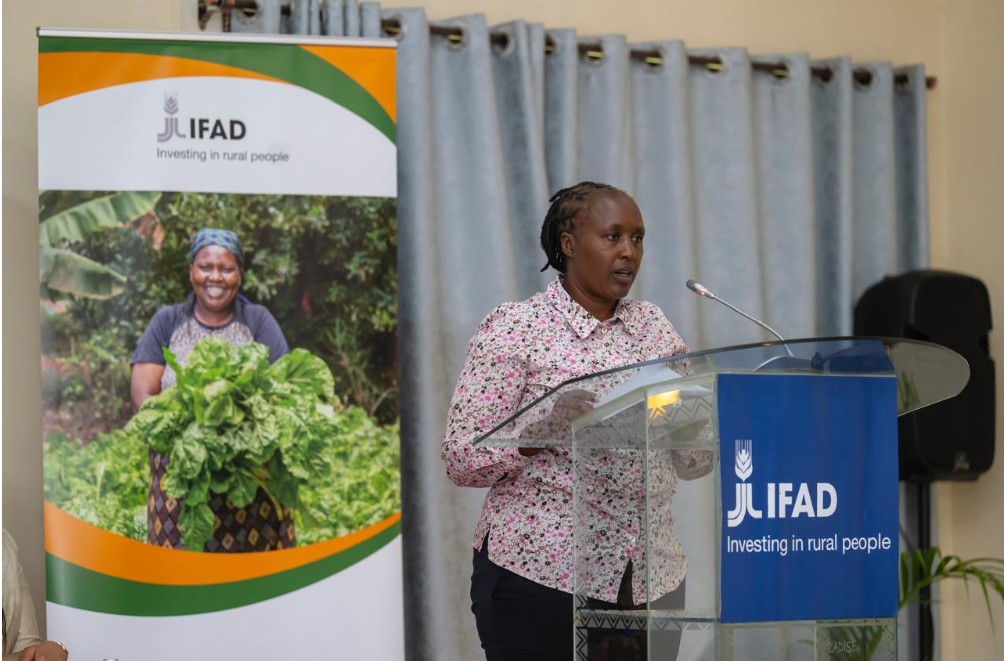The International Fund for Agricultural Development (IFAD) recently conducted a three-day workshop in Nairobi to discuss Nutrition-Sensitive Agriculture, Rural Development, and Food System Transformation projects in East and Southern Africa.
Malnutrition imposes a significant economic burden on countries in East and Southern Africa, resulting in productivity loss, increased healthcare costs, and poor educational outcomes.
This, in turn, reduces earning potential for rural populations and perpetuates cycles of poverty—cycles that IFAD is determined to break.
Globally, the economic impact of malnutrition is estimated at $3.5 trillion annually. At the national level, malnutrition can reduce GDP by up to 11 percent, and individuals affected by stunting may earn up to 22 percent less over their lifetimes compared to their well-nourished peers.
Sara Mbago-Mbunu, IFAD’s Regional Director for East and Southern Africa, noted some progress in reducing stunting rates among children under five in Kenya, Ethiopia, Rwanda, and Uganda. However, many countries in the region still face significant challenges in meeting nutrition targets.
“Overlapping crises affect many of our countries. Higher food and energy prices, conflicts, natural disasters, and climate change are putting extreme pressure on countries striving to achieve their sustainable development goals by 2030. The lack of infrastructure for food processing and storage often prevents rural families from accessing the nutritious food they need to break the cycle of malnutrition,” Sara stated.
Sara emphasized the need to harness the potential of rural agricultural production systems through diversification, innovation, technology, research, and science-based solutions.

This approach can boost the capacity to provide safe, diverse, and nutritious foods for all.
“Rural agriculture production systems offering a range of varieties, species, and breeds are crucial for biodiversity conservation and have significant potential to contribute to healthier diets while ensuring climate change adaptation and environmental sustainability,” she added.
Good nutrition is essential for health, development, survival, dignity, and economic productivity.
In Kenya, the burden of malnutrition is threefold: undernutrition (with underweight at 10 percent, stunting at 18 percent, and wasting at 5 percent), micronutrient deficiencies (including zinc, vitamin A, iron, and B vitamins), and an increasing incidence of overweight and obesity along with diet-related non-communicable diseases.
Mary Njer Kabaji, Head of the Agrinutrition Unit at the Ministry of Agriculture, stated that the Ministry is committed to improving the livelihoods of Kenyans and ensuring food and nutrition security.
“This is realized through a nutrition-sensitive agriculture approach with several interventions being implemented. The goal is to improve the nutrition status at the household level, which then translates to community and national levels,” Mary said.
The workshop was attended by IFAD staff from the Regional Office and headquarters, with representatives from Ethiopia, Kenya, Tanzania, Uganda, Rwanda, Burundi, Comoros, Angola, Zimbabwe, Malawi, Madagascar, Mozambique, Lesotho, Yemen, and South Sudan.
By :Anne Nyambura







More Stories
ACA Seizes Sh8 Million Counterfeit Calculators in CBD, Warns of Academic Sabotage
NCBA Receives Investment Offer From South Africa’s Nedbank
Sophos Offers Affordable Alternative to Secure Hybrid Work and Govern AI